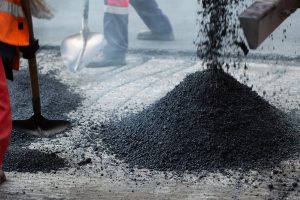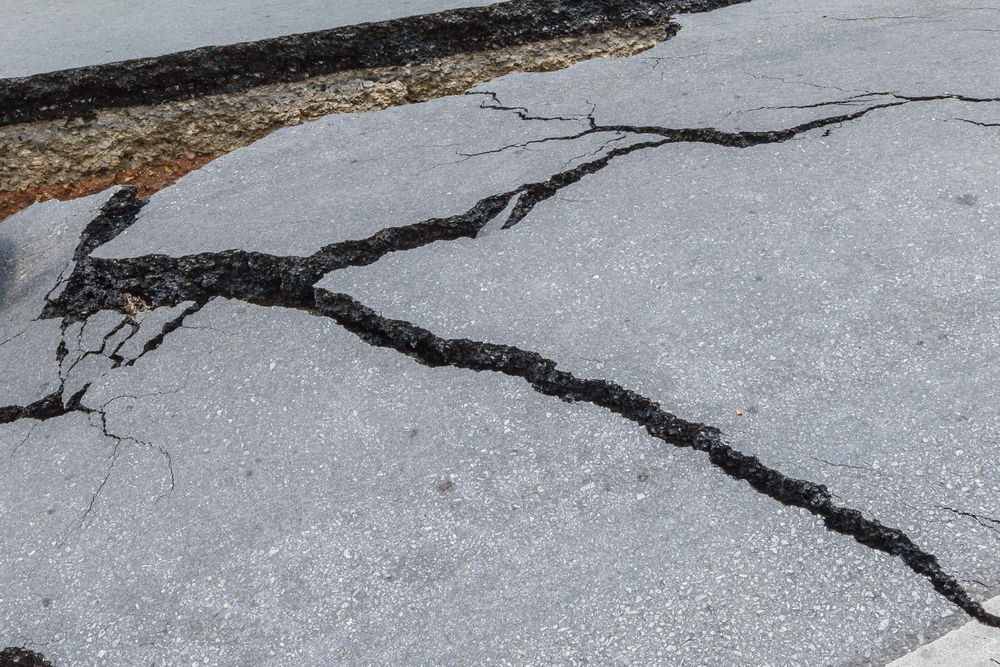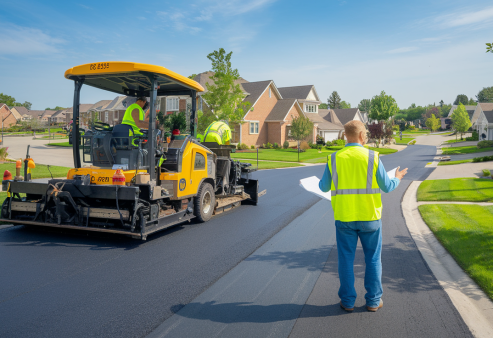The Environmental Benefits of Choosing Asphalt for Your Paving Needs
Table of Contents: Key Takeaways The Recyclability of Asphalt a. Circular Economy b. Landfill Diversion c. Resource Preservation Energy Efficiency in Asphalt Production ...

Experienced Professionals Delivering High-Quality Asphalt Services

Call Us Today!
The economical and intelligent choice for paving projects is recycled asphalt. With TurnKey Asphalt, homeowners and businesses can now enjoy long-lasting surfaces that are less expensive and more eco-friendly than new asphalt. The benefits of recycled asphalt make it the obvious choice for those seeking a practical and environmentally conscious way to improve roads, driveways, and parking facilities.
This substance is designed to survive the test of time, provide good drainage, and provide excellent traction while reducing landfill trash. Recycled asphalt is an excellent choice for tasks linked to pavement and sustainability. Contact TurnKey Asphalt today.

Recycled asphalt, or Recycled Asphalt Pavement (RAP), is existing pavement that has been processed and rejuvenated with new binding agents. This saves landfill waste while conserving natural materials like aggregates and bitumen.
The main function of recycling in sustainable buildings has been attributed to nearly 50 years of asphalt recycling. In the present scenario, almost all asphalt utilized in the U.S. is either recycled or reserved for later use; thus, asphalt has become synonymous with eco-friendly paving.
There are two methods for producing recycled asphalt: off-site treatment and in-situ recycling. Using asphalt recovered on-site decreases emissions and transportation expenses. The off-site processing of used asphalt involves crushing, mixing, and combining new binders before returning the material to reuse. New asphalt is then transported to another facility.
Recycled asphalt has a wide range of applications and is highly adaptable. The majority of it is utilized for parking spaces, sports courts, and roads and highways. This makes it ideal for restoring existing pavements because it saves money while maintaining performance.
This makes recycled asphalt a popular alternative for cutting-edge, high-performance infrastructure projects that use environmentally benign materials.
Recycled asphalt is an excellent alternative for sustainable paving projects since it provides several environmental benefits. Let’s explore how it minimizes the total environmental footprint:
Recycling asphalt helps minimize waste and repurpose materials, rather than disposing of them in landfills. New asphalt can be reused up to 30%, benefiting the environment. Recycled materials make paving projects more sustainable and environmentally friendly.
Utilizing recycled asphalt (RAP) decreases the usage of new materials like aggregates and binders, conserving mining and resource consumption. This protects natural resources while making paving more sustainable. Plus, its added stiffness makes it a great choice for heavy-traffic areas like highways.
Recycled asphalt emits less carbon than virgin asphalt. It eliminates all energy-demanding actions, such as mining, transporting, and refining raw materials, thus helping.
Resource conservation and reduction in environmental damage occur due to a 20-50% improvement in energy efficiency in producing recycled asphalt compared to new asphalt. The most energy-saving technique for sustainable building is cold-in-place recycling.
Employing recycled asphalt in projects enables contractors to implement more sustainable practices. It supports green building initiatives and helps to develop infrastructure to preserve high performance.
Besides its ecological advantages, recycled asphalt offers considerable economic gains. These advantages enhance the attractiveness of recycled asphalt for ongoing paving initiatives:
Recycled asphalt is much cheaper than virgin materials, saving contractors large amounts of money. This can help contractors spend more freely on projects while maintaining a durable and high-performance result.
Since RAP can be reused directly on-site, there are fewer transportation costs associated with hauling virgin materials. Additionally, recycling old asphalt reduces disposal fees, providing further savings for large-scale projects.
Recycled asphalt provides more durable and longer-lasting surfaces with better resistance to wear and tear. This results in less frequent maintenance and lower lifecycle costs for pavement projects, appealing to both contractors and property owners.
Using RAP allows contractors and public agencies to maximize their budgets, reinvesting the savings into other areas of the project. This improved efficiency allows for more sustainable practices without sacrificing quality or performance.

Recycled asphalt is just as tough, if not tougher than new asphalt, handling turbulent climates and heavy traffic. It would not go amiss in areas that experience freezing winters or sizzling summers. Recycled asphalt is fairly durable, resulting in reduced repairs over time. Recycled asphalt endures and has a longer lifespan, whether utilized for highways, driveways, or parking lots.
To guarantee the best quality and efficiency of recycled asphalt in paving initiatives, adhering to best practices is essential.
Recycled asphalt is not only environmentally friendly; it is also a long-lasting and cost-effective choice for any paving project. Whether renovating a driveway or tackling a large-scale road project, recycled asphalt reduces trash and expenses without sacrificing quality. The benefits of recycled asphalt in contemporary paving projects are obvious: it is both environmentally benign and reliable. Contact TurnKey Asphalt today to learn how this sustainable alternative will benefit your next project.

Table of Contents: Key Takeaways The Recyclability of Asphalt a. Circular Economy b. Landfill Diversion c. Resource Preservation Energy Efficiency in Asphalt Production ...


Table of Contents: Key Takeaways Why Asphalt Fails Water Intrusion Sun Exposure Heavy Loads Poor Foundation Identify Common Asphalt Problems a. Cracking Patterns ...


Avoiding the most common asphalt paving mistakes from the start helps prevent costly repairs and premature deterioration. Issues like improper base preparation, incorrect asphalt thickness, and poo...


Table of Contents Key Takeaways Why Choose Asphalt? a. Financial Sense b. Lasting Strength c. User Safety d. Quick Installation e. Visual Appeal The Lifecycle Cost A...


Table of Contents Key Takeaways Understand Asphalt's Lifespan Proactive Asphalt Maintenance Cycle a. Routine Inspection b. Thorough Cleaning c. Immediate Crack Sealing d. S...


Choosing the perfect material for your driveway is key to saving money and ensuring satisfaction with the final result. Both asphalt and concrete are popular options, each with its own set of advan...
